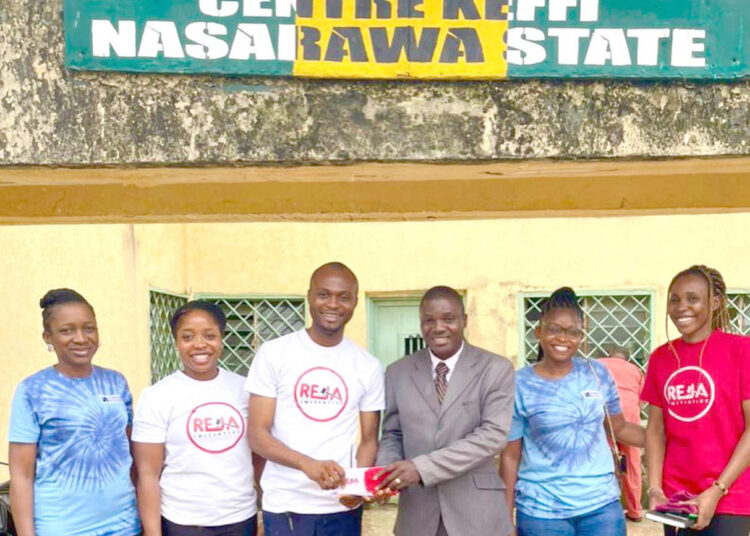Restorative Justice for Africa Initiative has lauded the federal government’s move to release 4,068 inmates serving various terms of imprisonment with options of fine or compensation.
The initiative, which was flagged off at the Kuje Medium Correctional Centre in Abuja, is targeted at inmates with fines not exceeding N1 million .
It applauded the minister of interior, Dr Olubunmi Tunji-Ojo, for initiating the release of the inmates and described the development as a major move by the federal government towards addressing the challenge of congestion in Nigerian Custodial Centres which currently hold approximately 80,659 inmates, far beyond their designed capacity of 50,000.
The group in a statement signed by its executive director, Osariemen Grace Omoruyi, said, “This initiatives provides a second chance at freedom for many. It underscores the critical need for a comprehensive approach to reduce the police-to-prison pipeline for petty offences and to ensure the successful rehabilitation and reintegration of individuals into society.
“It is imperative to recognize that true rehabilitation goes beyond physical release and merely releasing inmates is not sufficient; the true measure of success lies in ensuring the genuine rehabilitation and seamless reintegration of these individuals into society.
“The correctional centres are plagued by overcrowding, with 54,989 individuals awaiting trial and only 25,670 convicted. This stark contrast highlights the urgent need for a comprehensive approach that includes restorative justice principles to break the cycle of incarceration.”
She said noted that to effectively decongest correctional centres, the federal government should allocate resources for restorative justice programs that would reduce the police-to-prison pipeline for petty offences.
She added that Ancillary to this, the active implementation of policies and laws on non-custodial measures should be prioritized and necessary resources allocated to relevant departments such as Community Service and Restorative Justice departments of ministries to ensure more manpower and sufficient training for staff. With a strong presence in the 4 geopolitical zones, Restorative Justice for Africa Initiative has trained facilitators and can support these restorative interventions at all stages of the criminal justice process.
They also urged government to also address the backlog of cases in Courts by implementing efficient and timely trial processes, ensuring that individuals awaiting trial are not unjustly confined for extended periods in correctional centres to foster community involvement in the rehabilitation process by collaborating with local businesses to provide employment opportunities for returning inmates and encouraging community members to serve as mentors to returning inmates.
While calling on the federal government to implement a robust system for post-release monitoring and support, the government can ensure the successful reintegration of inmates into society.
“This support includes counselling services, mentorship programs, and collaborating with community-based organizations dedicated to assisting individuals in their journey toward sustained rehabilitation,” she said.
She said by implementing laws, engaging communities, expediting trials, and advocating for policy reforms, the government can create a criminal justice system that not only reduces congestion in custodial centres but also promotes the true rehabilitation and reintegration of individuals into society.





